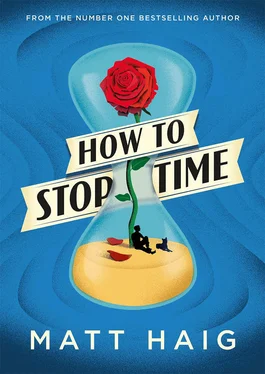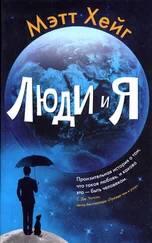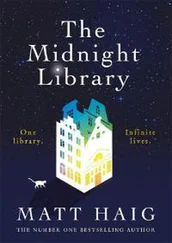Мэтт Хейг - How to Stop Time
Здесь есть возможность читать онлайн «Мэтт Хейг - How to Stop Time» весь текст электронной книги совершенно бесплатно (целиком полную версию без сокращений). В некоторых случаях можно слушать аудио, скачать через торрент в формате fb2 и присутствует краткое содержание. Год выпуска: 2017, Издательство: Canongate Books, Жанр: Современная проза, на английском языке. Описание произведения, (предисловие) а так же отзывы посетителей доступны на портале библиотеки ЛибКат.
- Название:How to Stop Time
- Автор:
- Издательство:Canongate Books
- Жанр:
- Год:2017
- ISBN:нет данных
- Рейтинг книги:4 / 5. Голосов: 2
-
Избранное:Добавить в избранное
- Отзывы:
-
Ваша оценка:
- 80
- 1
- 2
- 3
- 4
- 5
How to Stop Time: краткое содержание, описание и аннотация
Предлагаем к чтению аннотацию, описание, краткое содержание или предисловие (зависит от того, что написал сам автор книги «How to Stop Time»). Если вы не нашли необходимую информацию о книге — напишите в комментариях, мы постараемся отыскать её.
How to Stop Time — читать онлайн бесплатно полную книгу (весь текст) целиком
Ниже представлен текст книги, разбитый по страницам. Система сохранения места последней прочитанной страницы, позволяет с удобством читать онлайн бесплатно книгу «How to Stop Time», без необходимости каждый раз заново искать на чём Вы остановились. Поставьте закладку, и сможете в любой момент перейти на страницу, на которой закончили чтение.
Интервал:
Закладка:
I moved from place to place and from time to time like an arrow immune to gravity.
Things did improve for a little while.
My shoulder healed.
I went back to London. Hendrich set me up as a hotel pianist in London. Life was good. I drank cocktails and flirted with elegant women in beaded dresses and then went out into the night to dance to jazz with playboys and flapper girls. It was the perfect time for me, where friendships and relationships were expected to be intense and burn out in fast gin-soaked debauchery. The Roaring Twenties. That’s what they say now, isn’t it? And they did kind of roar, compared to the times before. Of course, previous London decades had been noisy – the bellowing 1630s, for instance, or the laughing 1750s – but this was different. For the first time ever, there was always a sound, somewhere in London, that wasn’t quite natural. The noise of car engines, of cinema scores, of radio broadcasts, the sound of humans overreaching themselves.
It was the age of noise, and so suddenly playing music had a new importance. It made you a master of the world. Amid the accidental cacophony of modern life to be able to play music, to make sense out of noise, could briefly make you a kind of god. A creator. An orderer. A comfort giver.
I enjoyed the role I was in, during this time. Daniel Honeywell, born in London, but who had been tinkling the ivories for upper-class tourists and émigrés on ocean liners since the Great War. Slowly, though, a melancholy set in. At the time I thought it was another episode of personal melancholy, the futility of loving a woman who had died so long ago. But I think it was also a product of being in tune with the times.
I wanted to do something. I was fed up of simply doing things to help myself. I wanted to do something for humanity. I was a human after all and my empathy was for other human beings, not just those with the curse – or the gift – of hyperlongevity. ‘Time guilt’, that’s what Agnes called it, when I chatted with her about it. She came to see me in London, towards the end of my eight years. She had been living in Montmartre. She had lots of stories. She was still fun.
‘I feel a sense of dread,’ I told her, her feet resting on my stomach, as we smoked cigarettes in bed in my Mayfair apartment. ‘I keep having nightmares.’
‘Have you been reading Mr Freud?’
‘No.’
‘Well, don’t. It will make you feel worse. Apparently we are not in control of ourselves. We are ruled by the unconscious parts of our psyche. The only truth we can hope to find about ourselves is in our dreams. He says that most people don’t want to be free. Because freedom involves responsibility, and most people are frightened of responsibility.’
‘I think that Freud has clearly never had to change his identity every eight years for ever.’
Then we went on what Agnes called an ‘adventure’ – a mission that Hendrich had given us via telegraph. It was one we were going to go on together. We drove in a car up to Yorkshire. In the bleak countryside at a grim gothic mental asylum called the High Royds Hospital, a woman had been locked up for telling people the truth of her condition. We kidnapped her from the grounds. Agnes held the chloroform handkerchief over the faces of three members of staff, and then had to do the same to poor Flora Brown, who was understandably frightened by the appearance of two strangers with their faces wrapped in scarves.
Anyway, we carried her out of there and escaped quite easily, and, for whatever reason – the hospital’s embarrassment? the total lack of care for their patients? the failure of the local authorities to check records? – the incident was never reported in the press. If it had been, we’d have been safe, Hendrich would have seen to that, but it wasn’t, and I have always found that terribly sad.
Anyway, Flora was young. She was only eighty years old. She looked seventeen or eighteen. She was a bewildered stuttering damaged thing when we found her, but the society saved her; it really did, the way it saved many others. She had honestly thought she was mad, and to discover her own sanity made her weep with relief. She left for Australia with Agnes and started a new life. Then she moved to America and started another one. But the point was: the society was doing good. It had saved people. Flora Brown. Reginald Fisher. And many, many more. And maybe myself, too. I realised Hendrich was right. There was a meaning and purpose to all this. I might not always have believed in him, but – most of the time – I believed in the work .
I didn’t want to go back to London. I told Hendrich by telegraph that I had arranged it with my employers Ciro’s to work in their sister restaurant, in a hotel in Paris. So, I went to live in Montmartre, in the apartment where Agnes had been living. I was her ‘brother’. There was a brief moment we overlapped. I mention this because we had a very interesting conversation. She told me that, as you get older, somewhere around the mid-millennium mark, albas develop a deep insight.
‘What kind of insight?’
‘It’s incredible. Like a third eye. The feeling for time becomes so profound that inside a single moment you can see everything. You can see the past and the future. It is as though everything stops and, for just that moment, you know how everything is going to be.’
‘And is that good? It sounds horrifying.’
‘It’s not good or horrifying. It just is. It’s just an incredibly powerful feeling, neither good or bad, where everything becomes clear.’
The conversation stayed with me, long after she left. I craved such clarity at a time when I could hardly understand my present, let alone my future.
I eventually moved to Montparnasse and wrote a lot of poetry. I once wrote a poem in the cemetery there, leaning against Baudelaire’s headstone, and I played the piano every night and made the most superficial acquaintances with poets and painters and artists that often only lasted a night.
I anchored myself in music. As well as Ciro’s, I sometimes worked at a jazz club called Les Années Folles. I had been playing the piano near-continuously for three decades now and it had become natural to me. Piano could carry a lot. Sadness, happiness, idiotic joy, regret, grief. Sometimes all at the same time.
I gained a routine. I would start my day with a Gauloise then I would head to Le Dôme Café on the Boulevard du Montparnasse and have a pastry (it was usually around midday by the time I was out of the apartment). I sometimes had a coffee. More often I had cognac. Alcohol became more than just alcohol. It felt like freedom. Drinking wine and cognac was almost a moral duty. And I drank and drank and drank, until I almost convinced myself I was happy.
But there was a sense of something tipping out of balance. The times seemed out of joint. There was too much decadence. Too much intensity. Too much change. Too much happiness juxtaposed with too much misery. Too much wealth next to too much poverty. The world was becoming faster and louder, and the social systems were becoming as chaotic and fragmented as jazz scores. So there was a craving, in some places, for simplicity, for order, for scapegoats and for bully-boy leaders, for nations to become like religions or cults. It happened every now and then.
It seemed, in the 1930s, that the whole course of humanity was at stake. As it very often does today. Too many people wanted to find an easy answer to complicated questions. It was a dangerous time to be human. To feel or to think or to care. So, after Paris I stopped playing the piano. And I didn’t play it again. The piano had been taking it out of me. I often wondered if I’d ever play it again. And I don’t know if I ever would have, if I hadn’t been sitting next to Camille when the opportunity arose.
Читать дальшеИнтервал:
Закладка:
Похожие книги на «How to Stop Time»
Представляем Вашему вниманию похожие книги на «How to Stop Time» списком для выбора. Мы отобрали схожую по названию и смыслу литературу в надежде предоставить читателям больше вариантов отыскать новые, интересные, ещё непрочитанные произведения.
Обсуждение, отзывы о книге «How to Stop Time» и просто собственные мнения читателей. Оставьте ваши комментарии, напишите, что Вы думаете о произведении, его смысле или главных героях. Укажите что конкретно понравилось, а что нет, и почему Вы так считаете.

![Мэтт Хейг - Влюбиться в жизнь [Как научиться жить снова, когда ты почти уничтожен депрессией]](/books/28868/mett-hejg-vlyubitsya-v-zhizn-kak-nauchitsya-zhit-sn-thumb.webp)





![Мэтт Хейг - Полночная библиотека [litres]](/books/388474/mett-hejg-polnochnaya-biblioteka-litres-thumb.webp)

![Мэтт Хейг - Клуб призрачных отцов [litres]](/books/392121/mett-hejg-klub-prizrachnyh-otcov-litres-thumb.webp)

![Мэтт Хейг - Отец Рождество и Я [litres]](/books/421076/mett-hejg-otec-rozhdestvo-i-ya-litres-thumb.webp)
